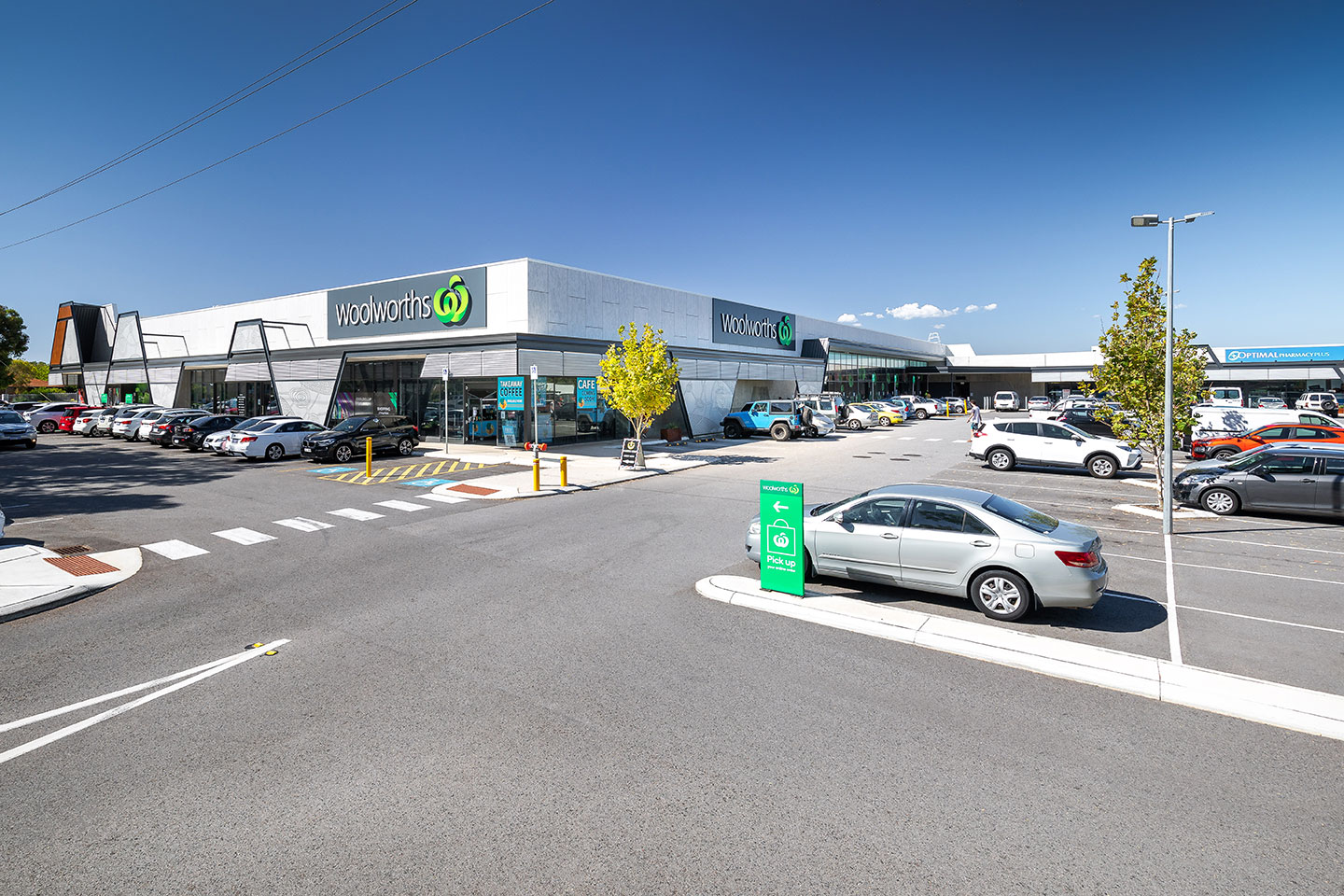With over 20 commercial properties under management, the majority of those being retail shopping centres, APIL looks back at the challenges presented in 2020 and the future of our retail centres.


A new phrase was added to the lexicon in 2020 – ‘essential services’ – and along with hospitals and aged care facilities, we suddenly understood like never before how important other everyday businesses were to our daily life. The supply chain of ensuring we had enough tins of tomatoes and toilet paper made front page news as supermarkets, pharmacies, take away cafés restaurants, butchers, fruit and vegetable vendors, convenience stores, bakeries, liquor and allied health all claimed the essential services moniker.
Many businesses in this category had to be agile and adapt to the new restrictive environment presented in 2020, pivoting to offer products and services which they had never considered before. As such, businesses had to innovate quickly with new offerings and added value services so takeaways created iso survival packs, cafes added takeaway options, and supermarkets had to restrict the numbers of certain popular items as the effects of COVID-19 began to ripple through the community at large. There was an additional, less obvious opportunity which smart businesses spotted and developed; the chance to engage with customers who had headed online, perhaps for the first time, to access offerings and functionality which built rapport, improved the customer experience and won loyalty from new users.
Retailers were challenged to think outside the square, listen to customer feedback and adjust accordingly to meet their demands. Not only did some businesses survive this period, but many thrived and went on to record a significant increase in revenue. The old adage of living through interesting times reaped rewards for those businesses able to respond in a nimble and creative way. For its part, APIL supported our tenants by ensuring our retail centres met COVID-safe guidelines, and in some centres where social distancing was in place, we added “Pick Up” bays for goods to be delivered straight to customers’ cars.
In the past, investors have often wondered whether shopping centres will survive, or whether everyone will be heading online to buy goods in the future. As COVID-19 continued to impact daily lives, the idea of bricks and mortar shopping centres still playing a role appeared to be more in the balance than ever, thanks to the new normal the pandemic created.
It’s certainly true that COVID-19 and the reverberations created by a global pandemic have given us a glimpse of the future of retail and accelerated some inevitable changes. Across Australia, we saw many consumers embrace online shopping experiences, in some cases, for the first time.
However, conversely we also witnessed a noticeable increase in leasing enquires at our retail centres from businesses with products that were not available to purchase online. Services which rely on the unique human connection were more in demand than ever, and enquiries from potential tenants for personal grooming services such as hair, beauty, massage and nails increased. In fact, some of these tenants expanded their business to additional locations, or used the opportunity to upsize to larger premises with the benefit of increased foot traffic and a shopping centre location.
Leasing enquiries were also received from allied health professionals keen to move into a shopping centre arena to access foot traffic and co-locate with complementary uses to build a community presence for their brand. The potential addition of these services provides patients with the convenience of easy parking and the mutual benefit of dropping in for some shopping or other services before or after their appointment. Gyms, personal training studios, and children’s activity and care centres have also made leasing enquires recently with APIL.
APIL has a long and strong history of acquiring and managing large format retail and neighbourhood centres across Australia. Having successfully syndicated and managed over $1 billion worth of commercial property over two decades, APIL celebrates its 20th anniversary in 2021. During this time a consistent fundamental that we have identified is that strategically located properties with high tenant appeal consistently provide regular, passive income to our investors, as well as potential capital growth.
APIL has recently identified some new assets and looks forward to presenting our latest investment opportunity - the APIL Essential Retail Income Fund. This new offering is a multi-property fund with an acquisition target of $100M, expected to be acquired through to 30 June 2022. The fund will close for investment thereafter and the properties will be managed through to the end of an eight-year term. The fund aims to acquire supermarket-anchored neighbourhood centres, food and beverage properties, medical and large format retail centres throughout Australia that are strategically located and supported by strong underlying fundamentals. The fund is best described as safe, low-risk, with high return potential and forecasts initial investor cash distributions of 7.0% over the next two years.
The first acquisition for the fund is Woolworths Coolbellup located on the corner of Waverley Road and Coolbellup Avenue, just 15km south of the Perth CBD. The shopping centre opened in November 2018 and is anchored by a Woolworths supermarket on a 15-year lease. The centre also has a pharmacy and five specialty shops with onsite car parking for 180 vehicles.
Core Property, an independent investment rating agency, has assessed the APIL Essential Retail Fund and rated the fund “recommended” for investment. A copy of this report is available on APIL’s website.
The APIL Essential Retail Income Fund is available to both retail and wholesale investors, with a minimum investment of $50,000. The fund, like all APIL funds, is available to Self-Managed Super Funds as well.














